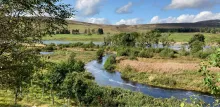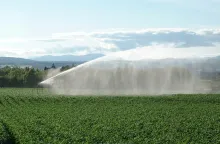CRW2024_04 Natural Capital and River Basin Management Planning: Protecting and Improving Scotland’s Water Environment
Type of project: Capacity Building Project.
Overview: This project will conduct an evidence synthesis to assess the current state of knowledge of how investments in protecting and improving natural capital influence the state of the water environment. The synthesis will also explore the wider benefits these investments provide for nature, climate adaptation, public health, net zero targets and agriculture.
Project Status: Project in progress
Project lead: SRUC




